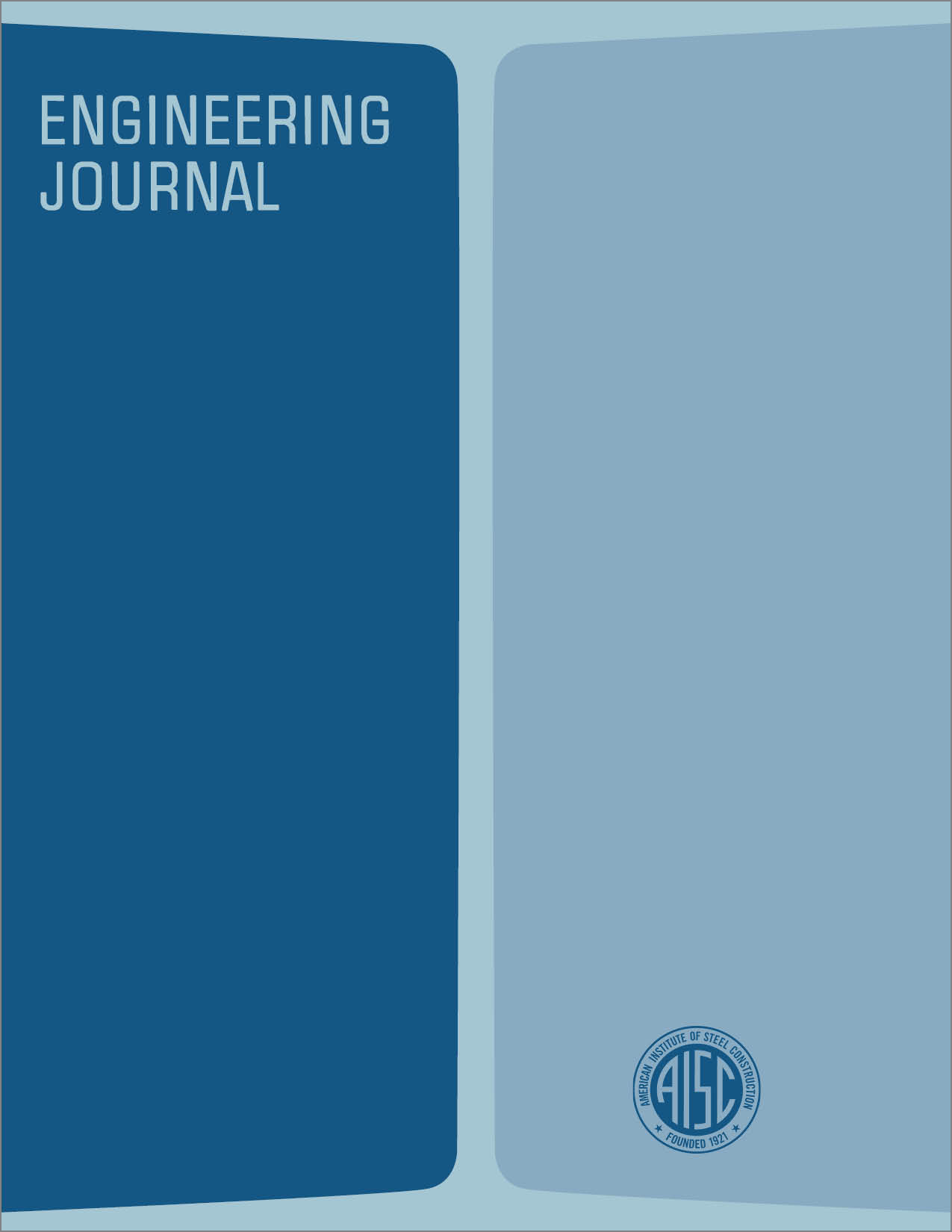Suggestions for Avoiding Beam- to- Column Web Connection Failure
DOI:
https://doi.org/10.62913/engj.v19i1.374Abstract
The following discussion draws attention to certain connection details that may not provide the commonly assumed ductility. Such ductility is important in applications where dependence is placed upon redistribution of moments, in plastic design, and in seismicresistant design. The potential for ductility problems increases as material thickness increases beyond that commonly encountered in building construction. Although the AISC Specification recommends allowable stresses which provide a larger ratio of limiting stress to service stress for connectors than for the connected members, designers may not be aware of the potential for fracture resulting from the effects of localized high restraint in some connection details. The paper is also intended to provide a qualitative "feel" for the manner in which stresses are transferred in a beam-to-column web moment connection, so that engineering judgment may be exercised in the design of such connections until the results of research in progress provide information on which quantitative provisions may be based.

